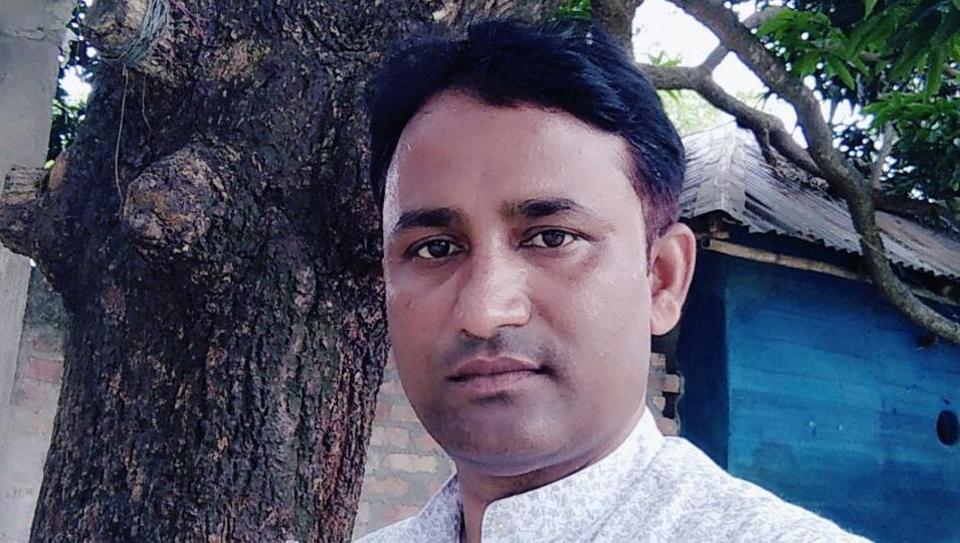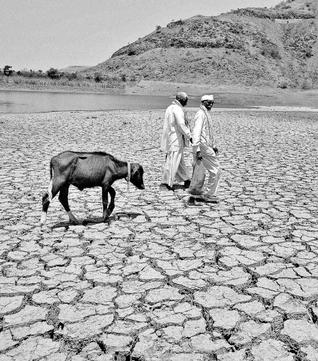DELHI / PUNJAB :
They beckon all of us to give human freedom respect, human beings dignity, and human rights recognition
One hundred years ago, on April 12, a letter dropped into the British Raj’s postal system. The writer of the letter was a world-famous poet. That is not the only reason for the letter having been unusual. It was, by the political sights of the government of the times, seditionist. But luminously so.
The Raj’s censors must have been greatly tempted to see its contents; perhaps they did, spurred by the ruling ‘order’ of the day, the Rowlatt Act. Curbing, in the name of war-time discipline, every conceivable civil liberty, the Act enabled stricter control of the press, arrests without warrant, indefinite detention without trial. It empowered the police to search a place and arrest any person they disapproved of without warrant. Naturally, it outraged India, and both the writer and recipient of the letter.
Written on April 12, 1919, by Rabindranath Tagore to Mohandas K. Gandhi, it was about what its writer called “the great gift of freedom”. He said: “…India’s opportunity for winning it will come to her when she can prove that she is morally superior to the people who rule her by their right of conquest.”
‘Faith or the life in death’
Tagore knew, doubtless, that the phrase “morally superior” would strike a chord in Gandhi. As would the sentence that followed: “She must willingly accept her penance of suffering, the suffering which is the crown of the great. Armed with her utter faith in goodness, she must stand unabashed before the arrogance that scoffs at the power of spirit.” Tagore ended the letter, as a poet would, with a verse: “Give me the faith of the life in death, of the victory in defeat, of the power hidden in the frailness of beauty, of the dignity of pain that accepts hurt but disdains to return it.” Prose is ever the ‘doer’, poetry the ‘artist’. And so this letter and the line just cited cannot hope to compete with Tagore’s much-quoted poem ‘Where the mind is without fear…’. But taken for itself, this sentence has to rank among the greatest expressions in prose of truth’s protest against power. Certain words, poetic word-images, in that line are scorching: death, defeat, dignity, pain, hurt.
India had, only a few days earlier, seen all those five word-images at play in Delhi. As the scholar-lawyer Anil Nauriya has recently reminded us, on March 30, 1919, the Raj’s police fired at a gathering in Delhi protesting the Rowlatt Act on a call by Mahatma Gandhi for a nation-wide hartal. Nauriya lists among them Hindus, Sikhs, Muslims.
A sample: Abdul Ghani, b. 1894. Killed in bayonet charge by a British Army unit near the Town Hall, Delhi. Atam Prakash: Received bullet wound in firing by the police and died the same day. Chandra Bhan, b. 1889. Received bullet wound in firing by an Army unit and died the same day. Chet Ram: Received bullet wound in firing by the police and died the same day. Gopi Nath, b. 1889: Received bullet wound in firing by an Army unit and died the same day. Hashmatullah Khan: b. 1890: Received bullet wound in firing by an Army unit and died the same day. Mam Raj: Received bullet wound in firing by the police and died the same day. Radha Saran, b. 1897: Received bullet wound in firing by an Army unit and died the same day. Radhey Shyam, b. 1891: Received bullet wound in firing by an Army unit and died the same day. Ram Lal, b. 1886: Received bullet wound in firing by an Army unit and died the same day. Ram Saroop: Received bullet wound in firing by the police and died the same day. Ram Singh: b. 1891: Received bullet wound in firing by an Army unit and died the same day. Chander Mal: Received bullet wound in firing by the police and died the same day. Seva Ram: Received bullet wound in firing by the police and died the same day. Swattin, son of Abdul Karim: Received bullet wound in firing by the police and died the same day.
The Delhi firing was, as it were, a macabre rehearsal for what was to follow. And it was doubtless on Tagore’s mind when he wrote the letter to Gandhi. It was still in the post’s pipelines when, the next day, on April 13, 1919, his poetic vision was to find prescient corroboration. Sikhs, Hindus and Muslims gathered in Jallianwala Bagh, Amritsar, Punjab not to oppose Rowlatt but for a festival that marks the Sikh new year, Baisakhi. Its intent was totally un-political. But who is to say how arrogance will work?
On April 13, 1919
What followed is now part of the world’s annals of state-led crime. Troops under the command of Brigadier General (temporary rank) Reginald Dyer entered the garden, blocking the main entrance after them, took up position on a raised bank, and on Dyer’s orders fired on the crowd for some ten minutes, minutes that were an eternity. They stopped only when the ammunition supply was almost exhausted. Official sources themselves gave a figure of 379 identified dead, with approximately 1,100 wounded. In those ten minutes Amritsar became India. It embodied a nation’s death-defying dignity in pain, hurt.
Tagore was, at the time of the mowing down ‘Sir’ Rabindranath. And he had been a Nobel Laureate for Literature for six years. On May 30, 1919, Tagore picked up his pen, this time, not that of a Nobel Laureate but of a Knight of the British Empire, to write a letter to the Viceroy, Lord Chelmsford. “News of the sufferings,” he wrote, had “trickled through the gagged silence, reaching every corner of India”. He then said: “The time has come when badges of honour make our shame glaring in their incongruous context of humiliation… I for my part wish to stand, shorn of all special distinctions, by the side of my countrymen who, for their so-called insignificance, are liable to suffer a degradation not fit for human beings.” And he asked of the Viceroy, “relieve me of the title of knighthood”.
Solidarity with suffering, especially when it is spontaneous, takes many forms. One is sharing by renunciation. Tagore’s self-divestment of the title, then perhaps the most coveted, of ‘Sir’ was an act of spontaneous solidarity with the suffering of Delhi, of Amritsar. And it was a chastisement, in Tagore’s words, of the “arrogance that scoffs at the power of spirit”.
The martyrs of Jallianwala beckon this generation, all of us, including India and Indians, Pakistan and Pakistanis, Bangladesh and Bangladeshis, Myanmar and Myanmarese, not just Britain, to give human freedom respect, human beings dignity, human rights recognition. Looking around them at those slain — Hindu with Dalit among them, Sikh and Muslim — the martyrs of Jallianwala would want correction and atonement from those on the Indian subcontinent and beyond its boundaries, who today foment division, discord, disunity.
Enduring arrogance
They also beckon us to see that “arrogance of power” is not a colonial or imperial patent, nor “the power of spirit” an attribute of liberation struggles alone. Arrogance can occur under post-colonial, post-imperial, ‘independent’ skies and can — must — summon the power of spirit.
‘Rowlatt’ is a temperament that seeks domination, control, hegemony. It has the characteristics of the bully — strength and insecurity. Asia, Africa and Latin America have known that temperament in both the hubris of the external ruler, the hauteur of the one within. And they have seen peoples’ power dismantling both. Bowing to public opinion in India and in the U.K., the Raj repealed the Rowlatt Act, the Press Act, and 22 other laws in March 1922 – a victory of the people. The Rowlatt temperament is not a feature of governments alone. It works in society as well, keeping sections of it in a state of chronic enfeeblement. The Rowlatt temperament is also to be seen in corporate India seeking monopolist domination over its natural resources and public commons.
This centenary of India’s rebuffing of the Rowlatt Act’s scowl through what Tagore called “the power of spirit” is one to be cherished, celebrated and be inspired by.
Gopalkrishna Gandhi is a former administrator, diplomat and governor
source: http://www.thehindu.com / The Hindu / Home> Opinion> Lead / by Gopalkrishna Gandhi / April 13th, 2019











